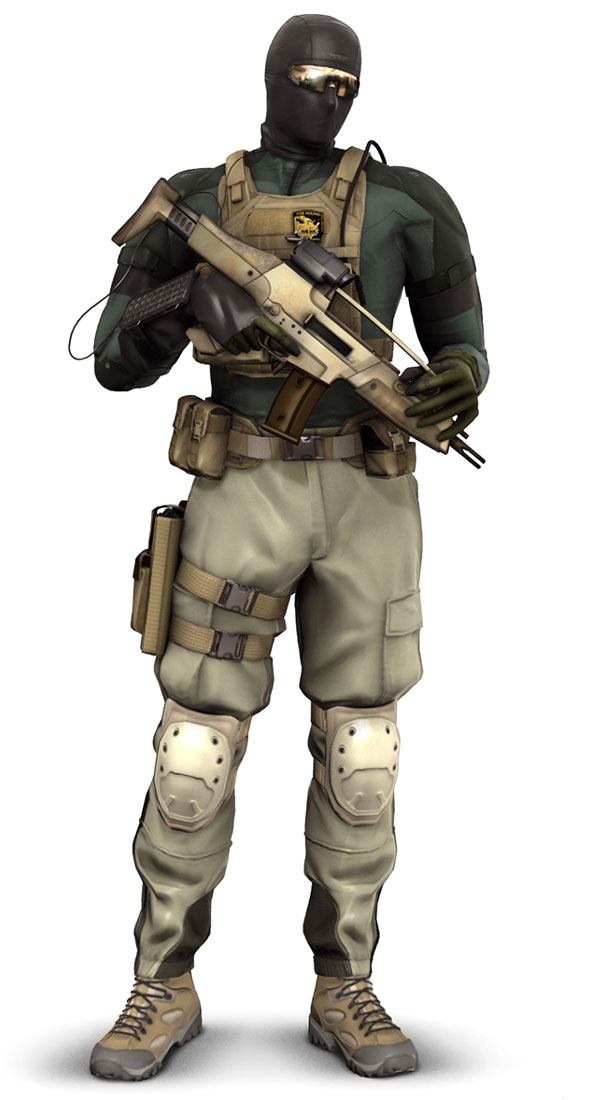This post has not been edited by the GamesBeat staff. Opinions by GamesBeat community writers do not necessarily reflect those of the staff.
The 24-hour news networks frequently accuse video games of glamorizing war, especially where children are concerned. And 99% of the time, the claim is baseless. Oftentimes when violent video games are accused of corrupting youth, someone has been shot, and a police report will reveal, shockingly, that he had a first person shooter on his computer. Or someone will get stabbed over a game of Mortal Kombat, and the local news broadcasters can only conclude that they must be acting out the horrible things the game taught them.
In so many cases, games are incidental to the real problem, which is that a person who was disturbed already, and for a litany of reasons, happened to also be a gamer. Except in the narrowest of views, it’s really difficult to look at stories like that and put the blame on games. Yet in almost every case, the idea that games are teaching violence and not simply serving as an outlet for a deranged mind is laughable.
But every now and then, a story comes out that makes me think, maybe there’s something more sinister going on here. In this case, I’m talking about the Blackwater game.
Private military companies have been featured many times in games, but always under a critical light and with a dubious tone cast on their motives. The Mercenaries series, Haze, and Metal Gear Solid 4 all depicted PMCs either as anti-heroes or villains.

In MGS4 they happen to be terrified, pants-crapping anti-heroes with flaxen hair.
But when you have a game that depicts the same company that paid to make it, chances are it’s going to be in a larger-than-life way.
It’s not like using a game to sell yourself is a new phenomenon. Burger King, Pepsi, and Volkwagen are just a few companies that have made games designed solely around selling a product. The important difference here being that Pepsi sells carbonated sugar water and Blackwater is a paramilitary force.

Pepsi Man has never shot anyone as far as we know. Killed some teeth, maybe.
But the Blackwater game is different. Not only does it seem to ignore all of the controversy that boiled up around the real-world Blackwater, it seems to lionize the soldiers of the disgraced MPC. Remember, this is the same Blackwater that was so shamed by the media attention it got following the shooting of 17 Iraqi civilians, it’s undergone PR reinventions in search of disassociating itself with that image. It became “Xe” in 2009, and just this month renamed themselves “Academi.” It’s interesting to note that the Blackwater game retains the original name of the company while the company itself has experienced multiple rebrandings.
While the alleged shootings were never prosecuted, the dark mark stayed on Blackwater’s reputation. Seemingly ignoring those events, the video game depicts Blackwater soldiers that swoop in heroically and save the day. In a particular bit of irony, the game even prompts you to take out enemy propaganda.
[embed:http://www.youtube.com/embed/DyaKfisoMy4 ]
I’m more concerned about the guy in this trailer than anything.
I know what Blackwater is doing with this game is perfectly legal, but I take issue with the ethics of selling real-world conflict through a video game. I was similarly conflicted about the America’s Army games, first-person shooters that were developed by the U.S. Army and used partially to train soldiers, but also as a PR device and recruitment tool. Let me be clear: I’ve got nothing against the army, far from it. But I do wonder about the rationale behind using a game as a form of recruitment.
One of the founders of Blackwater, Erik Prince, retains the rights to the Blackwater name and funded the production of the Blackwater game. Earlier this month, he apparently threatened legal action against Congresswoman Jan Shakowski for criticising his game as glamorizing conflict, and he characterized her as having a personal vendetta against him. I can understand wanted to defend his personal investment, but trying to discredit your accuser rather than actually defending your position makes you look more suspect than anything.
Prince has said that this game is more akin to kids playing cops and robbers to a military simulation. I don’t think this game is a training simulator by any stretch of imagination, but I also never played “PMC group versus terrorist cell” in my neighborhood.
All I’m saying is that games like this weaken the argument against violent games indoctrinating people. You can’t ignore the allegations leveled against Blackwater when you play a game like this, and it’s hard to see it as anything but propaganda.
I mean, what’s next? A deepwater Horizon oil spill adventure game?
